Following our Industrial Strategy update last week, as expected Sir John Bell has published his report for the government on Life Sciences and the Industrial Strategy. There are 7 main recommendations under 4 themes, which are summarised below.
Some interesting comments:
- “The key UK attribute driving success in life sciences is the great strength in university-based research. Strong research-based universities underpin most of the public sector research success in the UK, as they do in the USA and in Scandinavia. National research systems based around institutes rather than universities, as seen in Germany, France and China, do not achieve the same productivity in life sciences as seen in university-focussed systems.” (p22)
- “The decline in funding of indirect costs for charity research is coupled to an increasing tendency for Research Councils to construct approaches that avoid paying indirect Full Economic Costs (FEC). Together, these are having a significant impact on the viability of research in universities and have led to the institutions raising industrial overhead costs to fill the gap. This is unhelpful.” (p24 and see the recommendation about charitable contributions under “reinforcing the UK science offer” below)
- “It is also recommended, that the funding agencies, in partnership with major charities, create a high-level recruitment fund that would pay the real cost of bringing successful scientists from abroad to work in major UK university institutions.” (see the proposal to attract international scientists below).
- On clusters “Life sciences clusters are nearly always located around a university or other research institute and in the UK include elements of NHS infrastructure. However, evidence and experience suggests that governments cannot seed technology clusters28 and their success is usually driven by the underpinning assets of universities and companies, and also by the cultural features of networking and recycling of entrepreneurs and capital.” And “Regions should make the most of existing opportunities locally to grow clusters and build resilience by working in partnership across local Government, LEPs (in England), universities and research institutes, NHS, AHSNs, local businesses and support organisations, to identify and coalesce the local vision for life sciences. Science & Innovation Audits, Local Growth Funds and Growth Hubs (in England), Enterprise Zones and local rates and planning flexibilities can all be utilised to support a vision for life sciences. “ (see the proposal on clusters under “Growth and Infrastructure” – this was a big theme in the Industrial strategy and something we also covered in our Green Paper response)
- On skills: “ The flow of multidisciplinary students at Masters and PhD level should be increased by providing incentives through the Higher Education Funding Council for England.2 and “Universities and research funders should embed core competencies at degree and PhD level, for example data, statistical and analytical skills, commercial acumen and translational skills, and management and entrepreneurship training (which could be delivered in partnership with business schools). They should support exposure to, and collaboration with, strategically important disciplines including computer and data science, engineering, chemistry, physics, mathematics and material science.”
Health Advanced Research Programme (HARP) proposal – with the goal to create 2-3 entirely new industries over the next 10 years.
- Establish a coalition of funders to create the Health Advanced Research Programme to undertake large research infrastructure projects and high risk ‘moonshot programmes’, that will help create entirely new industries in healthcare
- Create a platform for developing effective diagnostics for early, asymptomatic chronic disease.
- Digitalisation and AI to transform pathology and imaging.
- Support projects around healthy ageing.
Reinforcing the UK science offer
- Sustain and increase funding for basic science to match our international competition – the goal is that the UK should attract 2000 new discovery scientists from around the globe
- The UK should aim to be in the upper quartile of OECD R&D spending and sustain and increase the funding for basic science, to match our international competitors, particularly in university settings, encouraging discovery science to co-locate.
- NIHR should be supported, with funding increases in line with Research Councils
- Ensure the environment remains supportive of charitable contributions through enhancing the Charity Research Support Fund (see above for the context for this).
- Capitalise on UKRI to increase interdisciplinary research, work more effectively with industry and support high-risk science.
- Use Government and charitable funding to attract up to 100 world-class scientists to the UK, with support for their recruitment and their science over the next ten years.
- Further improve UK clinical trial capabilities to support a 50% increase in the number of clinical trials over the next 5 years and a growing proportion of change of practice and trials with novel methodology over the next 5 years.
- Establish a working group to evaluate the use of digital health care data and health systems; to evaluate the safety and efficacy of new interventions; and to help ICH modernise its GCP regulations.
- Improve the UK’s clinical trial capabilities so that the UK can best compete globally in our support for industry and academic studies at all phases.
- Design a translational fund to support the pre-commercial creation of clinically-useable molecules and devices.
Growth and infrastructure – the goal is to create four UK companies valued at >£20 billion market cap in the next ten years.
- Ensure the tax environment supports growth and is internationally competitive in supporting long-term and deeper investment.
- Address market failures through Social Impact Bonds and encourage AMR research.
- Consider how UK-based public markets can be used more effectively in the sector.
- Support the growth of Life Sciences clusters.
- Government, local partners and industry should work together to ensure the right infrastructure is in place to support the growth of life sciences clusters and networks.
- UK’s existing clusters should work together and with government to promote a ‘single front door’ to the UK for research collaboration, partnership and investment.
- Attract substantial investment to manufacture and export high value life science products of the future. – the goal is to attract ten large (£50-250m capital investment) and 10 smaller (£10-50m capital investments) in life science manufacturing facilities in the next five years.
- Accept in full the recommendations of the Advanced Therapies Manufacturing Action Plan and apply its principles to other life science manufacturing sectors.
- A programme in partnership with industry to develop cutting-edge manufacturing technologies that will address scale-up challenges and drive up productivity.
- Optimise the fiscal environment to drive investment in industrial buildings, equipment and infrastructure for manufacturing and late-stage R&D.
- Consider nationally available financial incentives – grants and loans, or capital allowances combined with regional incentives – to support capital investment in scale-up, and prepare for manufacturing and related export activity.
- Make support and incentives for manufacturing investment and exporting available to business through a single front door, provide a senior national account manager accountable for delivery and simplify the customer journey.
NHS collaboration – the Accelerated Access Review should be adopted with national routes to market streamlined and clarified, including for digital products. There are two stated goals:
- The NHS should engage in fifty collaborative programmes in the next 5 years in late-stage clinical trials, real world data collection, or in the evaluation of diagnostics or devices.
- The UK should be in the top quartile of comparator countries, both for the speed of adoption and the overall uptake of innovative, cost-effective products, to the benefit of all UK patients by the end of 2023.
The recommended actions are
- Utilise and broaden the Accelerated Access Review to encourage UK investment in clinical and real-world studies. Deliver a conditional reimbursement approval, for implementation as soon as licensing and value milestones are delivered.
- Create a forum for early engagement between industry, NHS and arms-length bodies (e.g. NICE, MHRA) to agree commercial access agreements.
- Use the recommendations from the AAR to streamline the processes and methods of assessment for all new products.
- Value assessments should be evolved in the long-term with improved patient outcome measures, affordability and cost management data beyond one year timeframes.
- NICE’s funding model for technology evaluation should be set up in a way that does not stifle SME engagement
Data – Establish two to five Digital Innovation Hubs providing data across regions of three to five million people.
- The health and care system should set out a vision and a plan to deliver a national approach with the capability to rapidly and effectively establish studies for the generation of real world data, which can be appropriately accessed by researchers.
- ePrescribing should be mandatory for hospitals.
- NHS Digital and NHS England should set out clear and consistent national approaches to data and interoperability standards and requirements for data access agreements.
- Accelerate access to currently available national datasets by streamlining legal and ethical approvals.
- Create a forum for researchers across academia, charities and industry to engage with all national health data programmes.
- Establish a new regulatory, Health Technology Assessment and commercial framework to capture for the UK the value in algorithms generated using NHS data. A working group should be established to take this forward
- Two to five digital innovation hubs providing data across regions of three to five million people should be set up as part of a national approach and building towards full population coverage, to rapidly enable researchers to engage with a meaningful dataset. These regional hubs should also have the capability to accelerate and streamline CTA and HRA approvals. One or more of these should focus on medtech.
- The UK could host 4-6 centres of excellence that provide support for specific medtech themes, focussing on research capability in a single medtech domain such as orthopaedics, cardiac, digital health or molecular diagnostics.
- National registries of therapy-area-specific data across the whole of the NHS in England should be created and aligned with the relevant charity.
Skills
- A migration system should be established that allows recruitment and retention of highly skilled workers from the EU and beyond, and does not impede intra-company transfers.
- Develop and deliver a reinforced skills action plan across the NHS, commercial and third sectors based on a gap analysis of key skills for science.
- Create an apprenticeship scheme that focuses on data sciences, as well as skills across the life sciences sector, and trains an entirely new cadre of technologists, healthcare workers and scientists at the cutting-edge of digital health.
- Establish Institutes of Technology that would provide opportunity for technical training, particularly in digital and advanced manufacturing areas.
- There should be support for entrepreneur training at all levels, incentivising varied careers and migration of academic scientists into industry and back to academia.
- A fund should be established supporting convergent science activities including cross-disciplinary sabbaticals, joint appointments, funding for cross-sectoral partnerships and exchanges across industry and the NHS, including for management trainees.
- High quality STEM education should be provided for all, and the government should evaluate and implement additional steps to increase the number of students studying maths to level 3 and beyond


 NERC is undertaking an evaluation of its support for Early Career Researchers (ECRs) to be completed in 2017. This evaluation is the first of its kind to be undertaken by NERC to gain a better understanding of the challenges and issues facing ECRs during this crucial period for their career development.
NERC is undertaking an evaluation of its support for Early Career Researchers (ECRs) to be completed in 2017. This evaluation is the first of its kind to be undertaken by NERC to gain a better understanding of the challenges and issues facing ECRs during this crucial period for their career development.
 ent simulator, and the VirtaMed knee arthroscopy. This is the only lab in Europe where the two simulators are together.
ent simulator, and the VirtaMed knee arthroscopy. This is the only lab in Europe where the two simulators are together. just drilling holes into a piece of wood using the simulator was incredibly hard. However, as I used and practiced the simulators more, I could feel myself improving and progressing in the fundamental skills required.
just drilling holes into a piece of wood using the simulator was incredibly hard. However, as I used and practiced the simulators more, I could feel myself improving and progressing in the fundamental skills required.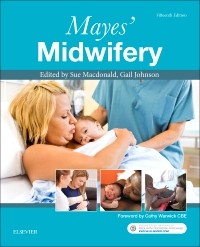
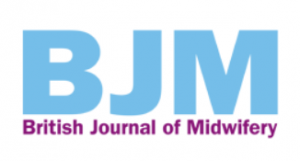
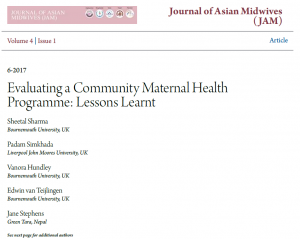

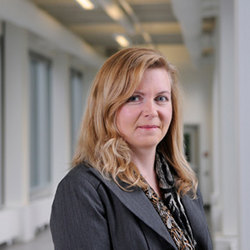

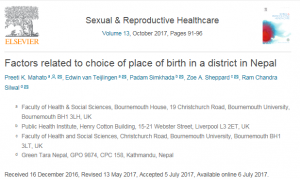


 I had the pleasure of spending the last three weeks in the Department of Life Sciences (University of Roehampton), working with Dr Giulia Corona and Dr Volker Behrends. We successfully validated an ultra-high performance liquid chromatography coupled with triple quadrupole mass spectrometry (UPLC-MS/MS) method to analyse lipid peroxidation products (breakdown products of fats) in human urine samples.
I had the pleasure of spending the last three weeks in the Department of Life Sciences (University of Roehampton), working with Dr Giulia Corona and Dr Volker Behrends. We successfully validated an ultra-high performance liquid chromatography coupled with triple quadrupole mass spectrometry (UPLC-MS/MS) method to analyse lipid peroxidation products (breakdown products of fats) in human urine samples. hod had to be tested and validated, using adult urine samples.
hod had to be tested and validated, using adult urine samples. provided the standards used in this analysis. I am grateful that I had this opportunity to further develop my research skills and to learn a new state-of-the-art technique and would like to thank all involved for making this possible!
provided the standards used in this analysis. I am grateful that I had this opportunity to further develop my research skills and to learn a new state-of-the-art technique and would like to thank all involved for making this possible!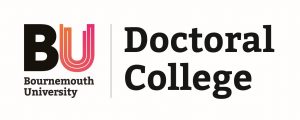


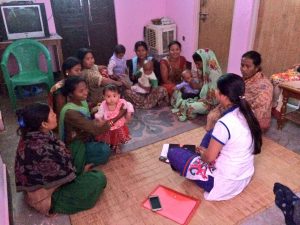











 Beyond Academia: Exploring Career Options for Early Career Researchers – Online Workshop
Beyond Academia: Exploring Career Options for Early Career Researchers – Online Workshop UKCGE Recognised Research Supervision Programme: Deadline Approaching
UKCGE Recognised Research Supervision Programme: Deadline Approaching SPROUT: From Sustainable Research to Sustainable Research Lives
SPROUT: From Sustainable Research to Sustainable Research Lives BRIAN upgrade and new look
BRIAN upgrade and new look Seeing the fruits of your labour in Bangladesh
Seeing the fruits of your labour in Bangladesh ECR Funding Open Call: Research Culture & Community Grant – Apply now
ECR Funding Open Call: Research Culture & Community Grant – Apply now ECR Funding Open Call: Research Culture & Community Grant – Application Deadline Friday 12 December
ECR Funding Open Call: Research Culture & Community Grant – Application Deadline Friday 12 December MSCA Postdoctoral Fellowships 2025 Call
MSCA Postdoctoral Fellowships 2025 Call ERC Advanced Grant 2025 Webinar
ERC Advanced Grant 2025 Webinar Update on UKRO services
Update on UKRO services European research project exploring use of ‘virtual twins’ to better manage metabolic associated fatty liver disease
European research project exploring use of ‘virtual twins’ to better manage metabolic associated fatty liver disease